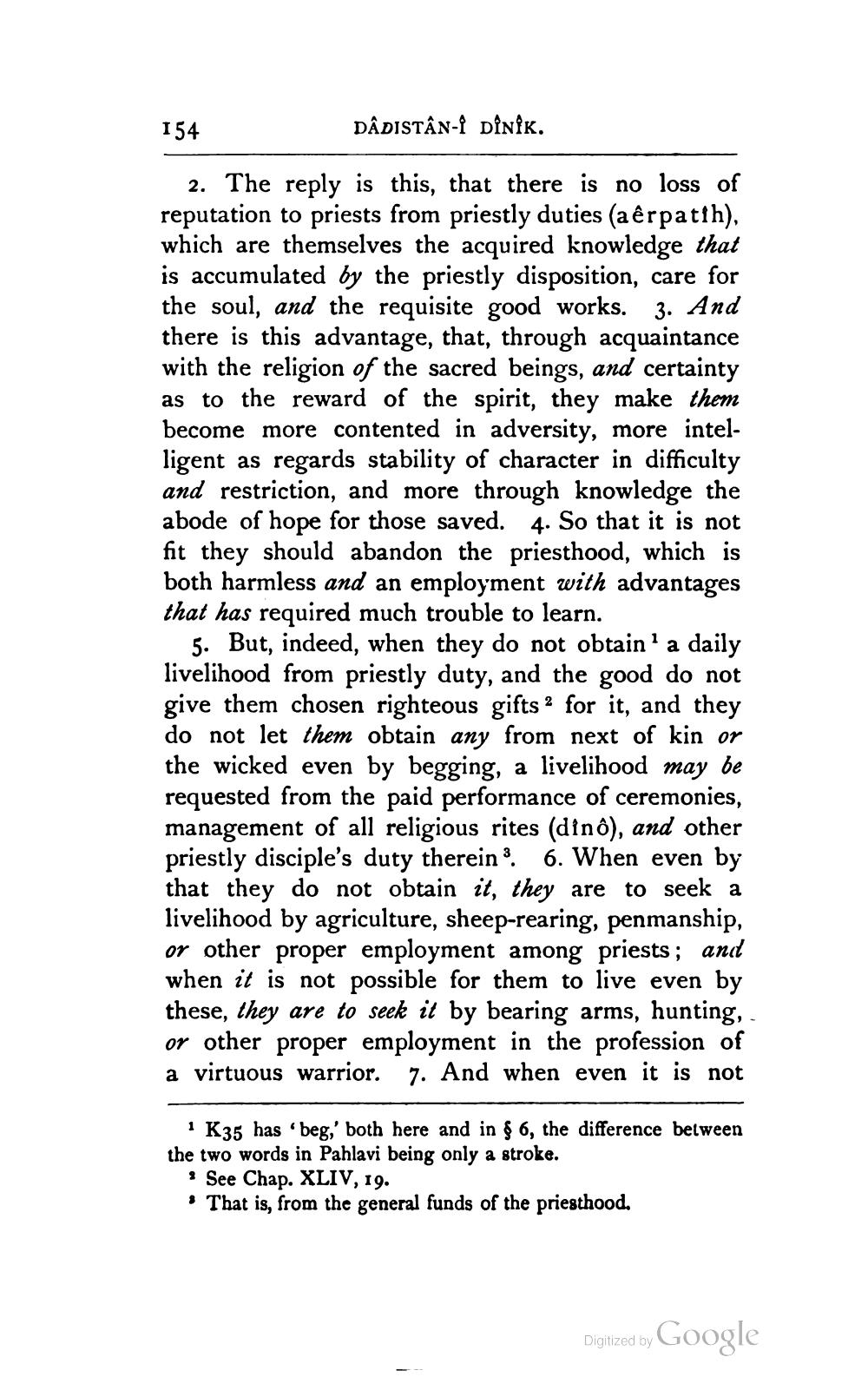________________
154
DÂDISTÂN- Dinik.
2. The reply is this, that there is no loss of reputation to priests from priestly duties (a êrpatih), which are themselves the acquired knowledge that is accumulated by the priestly disposition, care for the soul, and the requisite good works. 3. And there is this advantage, that, through acquaintance with the religion of the sacred beings, and certainty as to the reward of the spirit, they make them become more contented in adversity, more intelligent as regards stability of character in difficulty and restriction, and more through knowledge the abode of hope for those saved. 4. So that it is not fit they should abandon the priesthood, which is both harmless and an employment with advantages that has required much trouble to learn.
5. But, indeed, when they do not obtain a daily livelihood from priestly duty, and the good do not give them chosen righteous gifts for it, and they do not let them obtain any from next of kin or the wicked even by begging, a livelihood may be requested from the paid performance of ceremonies, management of all religious rites (dinô), and other priestly disciple's duty therein: 6. When even by that they do not obtain it, they are to seek a livelihood by agriculture, sheep-rearing, penmanship, or other proper employment among priests; and when it is not possible for them to live even by these, they are to seek it by bearing arms, hunting, or other proper employment in the profession of a virtuous warrior. 7. And when even it is not
1K35 has beg,' both here and in $ 6, the difference between the two words in Pahlavi being only a stroke.
See Chap. XLIV, 19. . That is, from the general funds of the priesthood.
Digitized by Google




